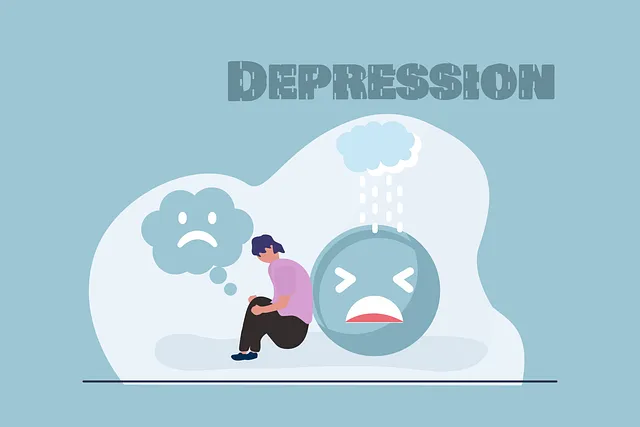The Kaiser Permanente Mental Health Department in Arvada, Colorado, prioritizes safety and risk management through comprehensive assessments, proactive planning, and open communication. They equip professionals with tools to handle high caseloads, stress, and cultural competency challenges. Their approach includes mindfulness practices, tailored workshops, and training for resilience and effective patient care. This strategy has led to improved outcomes, enhanced staff well-being, and a culture of holistic risk assessment within the department.
Mental health professionals constantly navigate complex risks, making accurate assessment crucial for patient safety. This article explores comprehensive risk management strategies employed by the Kaiser Permanente Mental Health Department in Arvada, highlighting their effectiveness. We delve into common challenges faced by practitioners and present successful case studies. By understanding these approaches, mental health services in Arvada and beyond can enhance their risk mitigation efforts, ensuring a safer environment for both professionals and patients. For more information on the Kaiser Permanente mental health department in Arvada, visit their website or call their phone number.
- Understanding Risk Assessment in Mental Health Practice
- The Role of Kaiser Permanente Mental Health Department in Risk Management
- Identifying Risks: Common Challenges Faced by Professionals
- Effective Strategies for Mitigating Risks in Arvada's Mental Health Services
- Case Studies: Success Stories from the Field
Understanding Risk Assessment in Mental Health Practice

Mental health professionals play a crucial role in helping individuals navigate complex emotional and psychological challenges. However, this work isn’t without risks. Effective risk assessment is a cornerstone of safe and compassionate mental health care, enabling practitioners to identify potential hazards within their practice settings, from patient self-harm to inter-professional conflicts. Understanding risk assessment involves recognizing not only threats but also protective factors, thereby fostering an environment that prioritizes safety while cultivating healing.
At the Kaiser Permanente mental health department in Arvada, Colorado, professionals employ robust communication strategies and risk management planning as essential components of their practice. This proactive approach leverages positive thinking and a culture of openness to mitigate potential risks, ensuring both client well-being and professional resilience. Through these methods, they not only safeguard against harm but also enhance the quality and effectiveness of mental health services provided.
The Role of Kaiser Permanente Mental Health Department in Risk Management

The Kaiser Permanente Mental Health Department plays a pivotal role in risk management for healthcare providers within their network. This department is equipped to offer comprehensive support and guidance on various aspects of mental health care, ensuring the well-being and safety of both patients and professionals. They provide resources and training tailored to address common risks and challenges faced by mental health practitioners, including those at their Arvada location.
By prioritizing risk assessment and mitigation, Kaiser Permanente fosters a culture of resilience among its mental health providers. Through regular workshops and programs, they enhance the skills of healthcare staff in managing stress, cultivating positive thinking, and promoting cultural competency. These initiatives are essential steps towards creating a supportive work environment that encourages professionals to thrive while delivering exceptional patient care.
Identifying Risks: Common Challenges Faced by Professionals

Mental health professionals in the fast-paced environment of the Kaiser Permanente mental health department in Arvada face unique challenges that can impact their well-being and practice. Identifying risks is a crucial step in mitigating potential issues, ensuring the best patient care, and maintaining professional resilience.
One common challenge is managing high caseloads and demanding schedules, which can lead to burnout and emotional regulation difficulties. Additionally, healthcare provider cultural competency training is essential to navigate the diverse backgrounds of patients, fostering inclusive and effective therapy sessions. Some professionals also integrate mindfulness meditation practices into their routines to enhance coping strategies and overall mental health.
Effective Strategies for Mitigating Risks in Arvada's Mental Health Services

In Arvada, mental health professionals can effectively mitigate risks by adopting a multi-faceted approach. The Kaiser Permanente mental health department plays a pivotal role in coordinating and promoting comprehensive risk management strategies. One key strategy involves incorporating Compassion Cultivation Practices into clinical settings, fostering empathy and resilience among healthcare providers. This not only enhances patient care but also mitigates the potential for burnout, a significant risk factor in mental health professions.
Additionally, organizing Stress Management Workshops specifically tailored to meet the needs of mental health professionals can significantly contribute to their well-being. These workshops often include evidence-based techniques such as mindfulness practices and stress reduction strategies. Similarly, providing Healthcare Provider Cultural Competency Training equips practitioners with the skills to navigate diverse patient populations effectively, reducing potential cultural barriers and misunderstandings that could otherwise escalate into risk scenarios.
Case Studies: Success Stories from the Field

In the realm of mental health professional risk assessment, case studies offer a vibrant tapestry of insights and success stories. One notable example is the approach adopted by the Kaiser Permanente mental health department in Arvada. By prioritizing comprehensive risk assessments, they’ve not only enhanced their clients’ outcomes but also fostered a culture of resilience within their team. This strategy involves regular reviews, open communication channels, and integrating Stress Reduction Methods to mitigate risks effectively.
The success at Kaiser Permanente underscores the importance of Mental Health Awareness and Self-Care Practices in preventing and managing professional burnout. Through these initiatives, mental health professionals can navigate the complex landscape of client care while safeguarding their own well-being. Such proactive measures not only ensure better patient outcomes but also serve as a testament to the power of holistic risk assessment strategies.
Mental health professionals face unique challenges that require a comprehensive risk assessment approach. As highlighted in this article, understanding these risks is crucial for providing safe and effective care. The Kaiser Permanente Mental Health Department’s active role in risk management serves as a valuable model for other organizations, demonstrating how proactive strategies can enhance service delivery. By identifying common challenges and implementing effective mitigation tactics, such as those successfully employed by Arvada’s mental health services, professionals can ensure they are equipped to handle potential risks. For more information on the Kaiser Permanente mental health department’s resources, visit their website or contact them via their dedicated phone number in Arvada.






